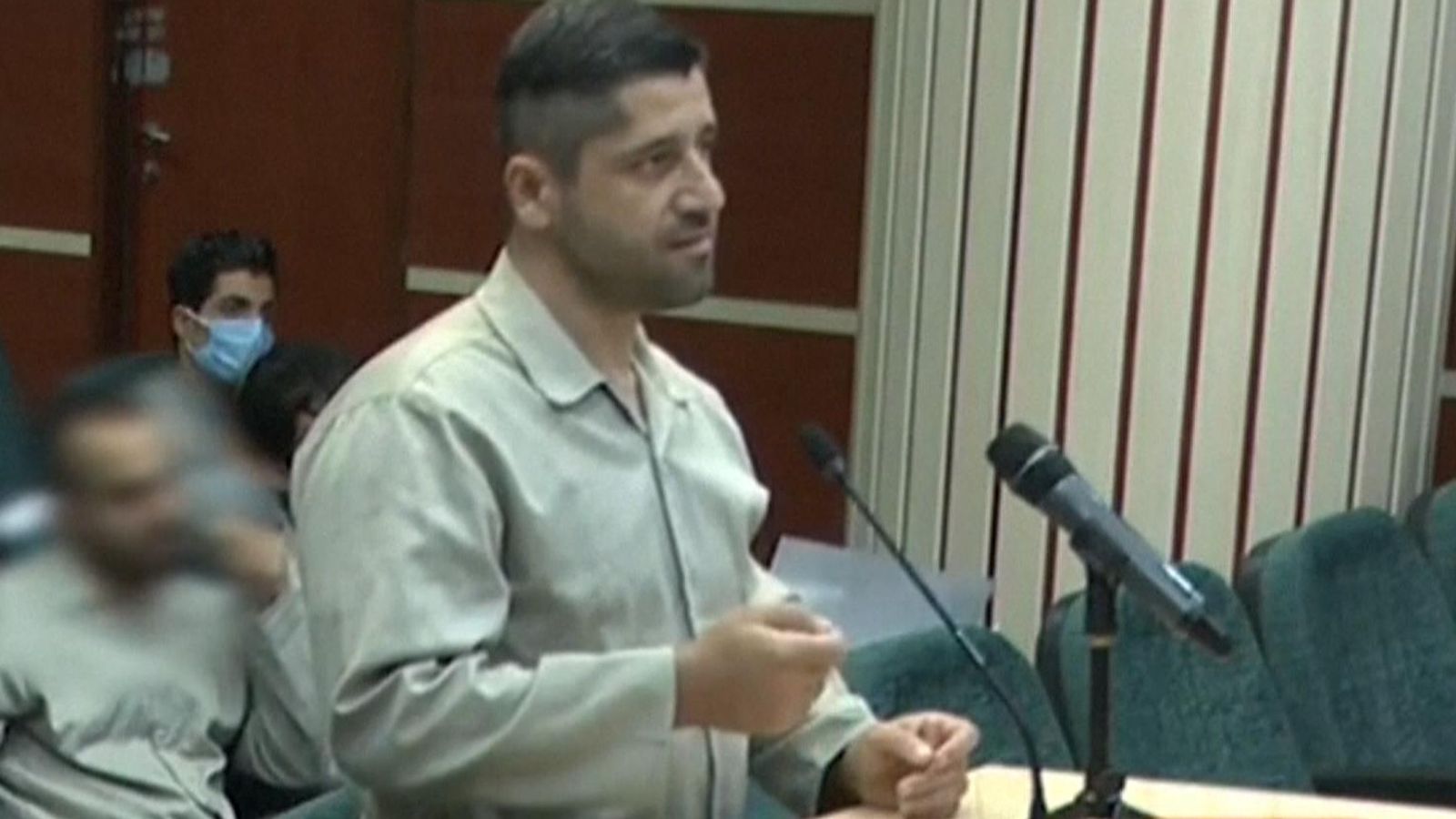Iran executes two more men over alleged violence at anti-government protests

Two men have been executed for allegedly killing a paramilitary volunteer during protests, Iranian authorities have said.
They were named as Mohammad Mehdi Karami and Mohammad Hosseini, meaning four men are now known to have been put to death since anti-government demonstrations started in September.
All have had quick, closed-door trials that Western governments and human rights groups say are a sham.
The judiciary’s Mizan news agency said they had been convicted of killing Seyed Ruhollah Ajamian, part of the Iranian Revolutionary Guard’s volunteer Basij force.
It is said to have happened in Karaj, outside of the capital Tehran, on 3 November.
The Basij have been working to suppress the protests, attacking and detaining demonstrators.
Iran‘s hardline religious rulers have been faced with some of the fiercest anti-regime protests in years.
They were triggered by the death of Mahsa Amini, who died after being detained by religious police for allegedly not wearing her hijab properly.
Heavily-edited TV pictures showed the two men confessing to the allegations in court, but activists say forced confessions are commonplace.
Advertisement
The Revolutionary Court also doesn’t allow defendants to see the evidence against them or choose their own lawyers.
Human rights group Amnesty International said the trials “bore no resemblance to a meaningful judicial proceeding”.
‘Corruption on Earth’ charges
As well as the killing, the men were convicted of “corruption on Earth” – a Koranic term carrying the death penalty that’s often used against opponents of Iran’s regime.
Two other men were executed in December after being accused of crimes linked to the protests.
Executions in Iran are usually carried out by hanging.
Activists in Iran say at least 16 people have been sentenced to death in charges related to the protests, with 517 killed in violence and more than 19,200 arrested.
Authorities haven’t given any official numbers.
Live ammunition, bird shot, tear gas and batons are all said to have been used against demonstrators.
Many women have attended the protests – often without the mandatory hijab head covering in reference to Ms Amini’s death.
Meanwhile, a new hardline police chief was appointed on Saturday, according to the official IRNA news agency.
General Ahmad Reza Radan was chosen by the supreme leader, Ayatollah Ali Khamenei, and is known for his harsh handling of protesters during election protests in 2009.